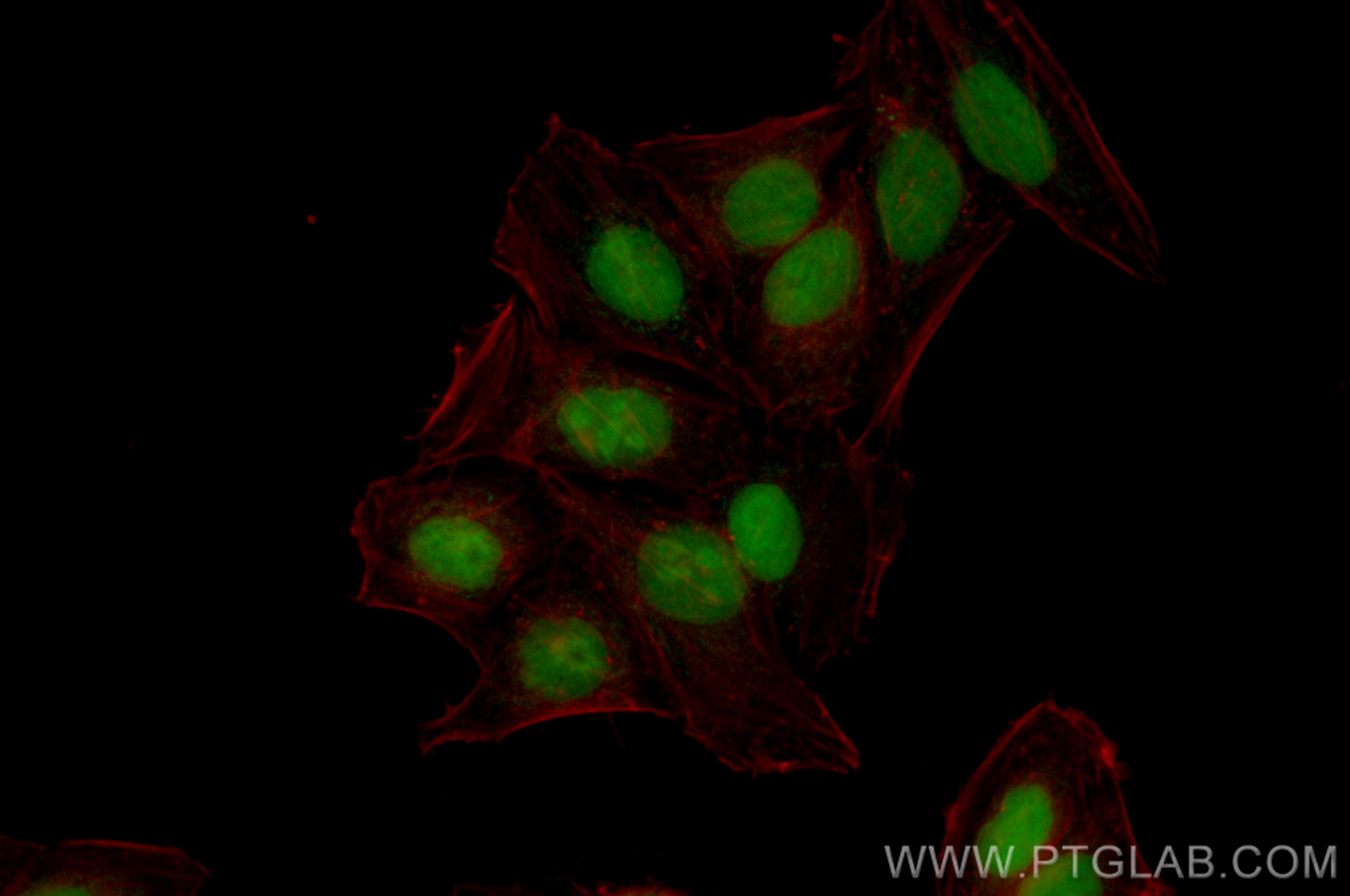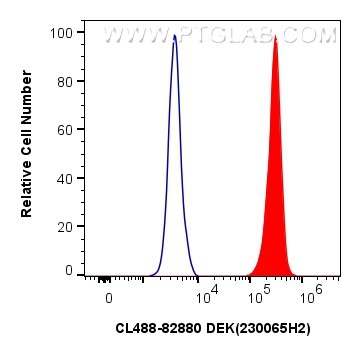Tested Applications
| Positive IF/ICC detected in | HepG2 cells |
| Positive FC (Intra) detected in | HeLa cells |
Recommended dilution
| Application | Dilution |
|---|---|
| Immunofluorescence (IF)/ICC | IF/ICC : 1:50-1:500 |
| Flow Cytometry (FC) (INTRA) | FC (INTRA) : 0.40 ug per 10^6 cells in a 100 µl suspension |
| It is recommended that this reagent should be titrated in each testing system to obtain optimal results. | |
| Sample-dependent, Check data in validation data gallery. | |
Product Information
CL488-82880 targets DEK in IF/ICC, FC (Intra) applications and shows reactivity with human, rat samples.
| Tested Reactivity | human, rat |
| Host / Isotype | Rabbit / IgG |
| Class | Recombinant |
| Type | Antibody |
| Immunogen | DEK fusion protein Ag8225 Predict reactive species |
| Full Name | DEK oncogene |
| Calculated Molecular Weight | 43 kDa |
| Observed Molecular Weight | 45-50 kDa |
| GenBank Accession Number | BC035259 |
| Gene Symbol | DEK |
| Gene ID (NCBI) | 7913 |
| RRID | AB_3673095 |
| Conjugate | CoraLite® Plus 488 Fluorescent Dye |
| Excitation/Emission Maxima Wavelengths | 493 nm / 522 nm |
| Form | Liquid |
| Purification Method | Protein A purification |
| UNIPROT ID | P35659 |
| Storage Buffer | PBS with 50% Glycerol, 0.05% Proclin300, 0.5% BSA, pH 7.3. |
| Storage Conditions | Store at -20°C. Avoid exposure to light. Stable for one year after shipment. Aliquoting is unnecessary for -20oC storage. |
Background Information
Dek oncogene(DEK) is first recognized in a fusion with CAN nucleoporin protein, and it's a also autoantigen in patients with pquciarticular onset juvenile rheumatoid arthritis. As a site-specific binding protein, DEK may involve in transcriptional regulation and signal transdcution. Analysis by agarose gel celctrophoresis, DEK showed to reduce the efficiency with which chromation is replicated. It's one of the first components of the splicing complex, which remains associate with spliced exons dependent on prior splicing of pre-mRNA.
Protocols
| Product Specific Protocols | |
|---|---|
| IF protocol for CL Plus 488 DEK antibody CL488-82880 | Download protocol |
| FC protocol for CL Plus 488 DEK antibody CL488-82880 | Download protocol |
| Standard Protocols | |
|---|---|
| Click here to view our Standard Protocols |





